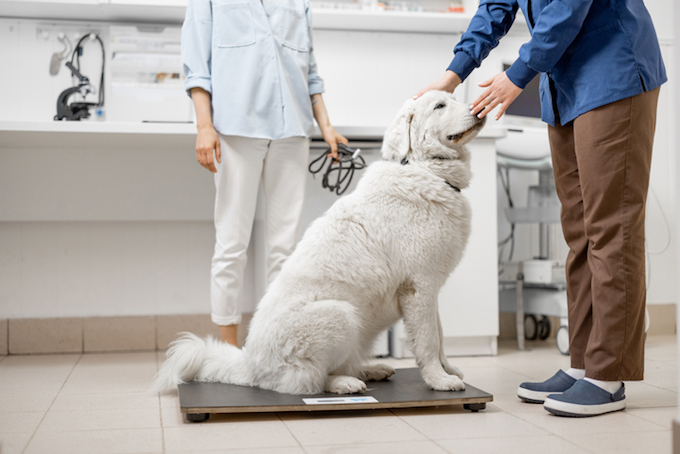Atherosclerosis in dogs often happens when fatty substances including cholesterol block the arteries. The condition affects older dogs the most.
Sometimes, you might hear the condition called hardening and blockage of the arteries in dogs.
Additionally, certain dog breeds are most at risk of developing the condition. Those breeds include Poodles, Doberman Pinschers, and Beagles.
If you see the signs of atherosclerosis in your dog, then get to a veterinarian for a proper diagnosis and treatment.
Here’s what you should know about the symptoms, causes, and treatments for the condition.
Symptoms of Atherosclerosis in Dogs
The condition produces a wide range of symptoms. For example, some of the most common symptoms include:
- Acting lethargic
- Loss of appetite
- Weakness
- Diarrhea
- Breathing issues
- Acting disoriented
- Fainting
- Heart attack
- Hair loss
- Circling
- Obesity
Causes of Atherosclerosis in Dogs

The cause of the condition is too much cholesterol. When cholesterol builds up, it can harden and cause a blockage in the arteries.
Some of the most common ways a dog ends up with too much cholesterol include:
- Eating too many high fat foods
- High blood pressure
- Diabetes mellitus
- Not enough exercise
- Hyperthyroidism
- Cushing’s disease
- Chlamydia
- Obesity
- Steroids
Treatments for Atherosclerosis in Dogs
Firstly, your vet will ask about your dog’s symptoms. Secondly, your vet will ask about your dog’s diet and exercise levels.
Thirdly, a full physical examination will be carried out.
Blood and urine tests will also be taken. Additionally, the liver and thyroid levels will be tested.
Treatment will focus on the underlying cause of the condition. Sometimes, medication to lower cholesterol levels will be prescribed.
As always, if your vet prescribes your dog any medicine, make sure to stick to the correct dose and frequency instructions. Also, complete the full course of medicine.
While there is no cure for the actual condition, treatment and management can help to improve your dog’s health. Your vet will help suggest lifestyle and dietary changes to benefit your dog.
Have you ever cared for a dog who suffered from this condition? How did your vet help your dog recover? Let us know in the comments section below.





